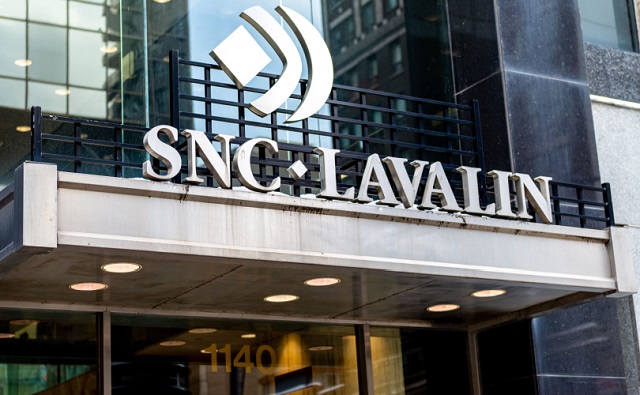National
Liberal MPs stop police commissioner from testifying about SNC-Lavalin scandal

From LifeSiteNews
RCMP commissioner Michael Duheme was set to testify about whether Justin Trudeau blocked police from obtaining cabinet documents in the SNC-Lavalin affair when MPs on the ethics committee voted 7-3 to adopt a Liberal motion to abruptly adjourn the meeting
Canadian Liberal MPs on the ethics committee voted to stop the Royal Canadian Mounted Police (RCMP) commissioner from testifying about a bribery scandal involving the large Canadian engineering firm SNC-Lavalin and the federal Liberal government of Prime Minister Justin Trudeau.
RCMP commissioner Michael Duheme was set to testify about the bribery scandal to speak about whether Trudeau blocked the police from obtaining certain cabinet documents, which might have implicated him regarding his obstruction of justice charges that stemmed from the SNC-Lavalin affair.
Liberal, New Democrat (NDP), and Bloc Québécois MPs on the ethics committee voted 7-3 to adopt a Liberal motion to abruptly adjourn the meeting with Duheme only minutes after it began.
Conservative MP Michael Barrett called the abrupt meeting cancellation “unacceptable.”
“Witnesses were to give testimony and now we have government members looking to shut down a hearing on a very serious matter with respect to a criminal investigation into the Prime Minister and we have the Commissioner of the RCMP at this table,” Barrett said.
Liberal MP Mona Fortier, who serves as the ethics committee vice chair, claimed the SNC-Lavalin scandal had not been “discussed whatsoever by the committee.”
“I think the committee should at least have had the opportunity to debate the motion presented in due form. I don’t think this is necessarily the best way to go forward, having committees unable to make their decisions. So based on this reasoning, I would like to adjourn the meeting,” she said.
In June, LifeSiteNews reported on how the RCMP denied it was looking into whether Trudeau and his cabinet committed obstruction of justice concerning the SNC-Lavalin bribery scandal.
SNC-Lavalin was faced with charges of corruption and fraud concerning about $48 million in payments made to officials with the Libyan government between 2001 and 2011. The company had hoped to be spared both a trial and prosecution deferred prosecution agreement.
However, then-Attorney General Jody Wilson-Raybould did not go along with Trudeau’s plan, which would have allegedly appeared to help SNC-Lavalin. Back in 2019, she contended that both Trudeau and his top Liberal officials had inappropriately applied pressure to her for four months to directly intervene in the criminal prosecution relating to corruption and bribery charges connected to SNC’s government contracts in Libya.
Wilson-Raybould testified in early 2019 to Canada’s justice committee that she believed she was moved from her then-justice cabinet posting to veterans’ affairs due to the fact she did not grant a request from SNC-Lavalin for a deferred prosecution agreement rather than a criminal trial.
Of note is that a criminal conviction would have banned the company from getting any government contracts for 10 years.
Trudeau flat-out denied it was being investigated by the RCMP.
A little less than four years ago, Trudeau was found to have broken the federal ethics laws, or Section 9 of the Conflict of Interest Act, for his role in pressuring Wilson-Raybould.
MPs were hoping Duheme’s testimony would clear up many questions
Conservative MPs were hoping that Duheme’s testimony would have cleared up more questions about the SNC-Lavalin scandal after the group Democracy Watch on October 16 revealed a host of records regarding it.
These records show that the RCMP was stopped by Trudeau’s top cabinet members via a restricted disclosure order. This order stated that authorization to waive solicitor-client privilege would not be allowed in regard to information concerning communications between Wilson-Raybould and the director of public prosecutions regarding SNC-Lavalin.
The records released by Democracy Watch involve about 1,815 pages of records from 19 documents that the RCMP recently disclosed after an Access to Information Act (ATIA) request.
In July 2022, the group filed an Access to Information Act (ATIA) request with the RCMP about the SNC-Lavalin affair and Trudeau.
As for SNC-Lavalin, which now goes by the name “AtkinsRéalis,” in 2019 it pleaded guilty to committing fraud in a Québec Provincial Court and was hit with a $280 million fine. Company executives also admitted that they had paid some $47.7 million in bribes to get contracts in Libya.
After Duheme was blocked from testifying, Conservative MPs Barrett and Larry Brock said in a press release that Trudeau had “refused to hand over documents or let individuals who were involved in the affair testify” after it was discovered he broke Canada’s ethics laws.
Alberta
READ IT HERE – Canada-Alberta Memorandum of Understanding – From the Prime Minister’s Office

Business
Higher carbon taxes in pipeline MOU are a bad deal for taxpayers

The Canadian Taxpayers Federation is criticizing the Memorandum of Understanding between the federal and Alberta governments for including higher carbon taxes.
“Hidden carbon taxes will make it harder for Canadian businesses to compete and will push Canadian entrepreneurs to shift production south of the border,” said Franco Terrazzano, CTF Federal Director. “Politicians should not be forcing carbon taxes on Canadians with the hope that maybe one day we will get a major project built.
“Politicians should be scrapping all carbon taxes.”
The federal and Alberta governments released a memorandum of understanding. It includes an agreement that the industrial carbon tax “will ramp up to a minimum effective credit price of $130/tonne.”
“It means more than a six times increase in the industrial price on carbon,” Prime Minister Mark Carney said while speaking to the press today.
Carney previously said that by “changing the carbon tax … We are making the large companies pay for everybody.”
A Leger poll shows 70 per cent of Canadians believe businesses pass most or some of the cost of the industrial carbon tax on to consumers. Meanwhile, just nine per cent believe businesses pay most of the cost.
“It doesn’t matter what politicians label their carbon taxes, all carbon taxes make life more expensive and don’t work,” Terrazzano said. “Carbon taxes on refineries make gas more expensive, carbon taxes on utilities make home heating more expensive and carbon taxes on fertilizer plants increase costs for farmers and that makes groceries more expensive.
“The hidden carbon tax on business is the worst of all worlds: Higher prices and fewer Canadian jobs.”
-

 Alberta4 hours ago
Alberta4 hours agoFrom Underdog to Top Broodmare
-

 International1 day ago
International1 day agoAfghan Ex–CIA Partner Accused in D.C. National Guard Ambush
-

 International2 days ago
International2 days agoTrump orders 500 more troops to reinforce D.C. after Guard shooting
-

 Artificial Intelligence2 days ago
Artificial Intelligence2 days agoTrump’s New AI Focused ‘Manhattan Project’ Adds Pressure To Grid
-

 armed forces2 days ago
armed forces2 days agoCarney’s ‘Shared Sacrifice’ Is a Lie. Only Veterans Are Bleeding for This Budget
-

 Alberta1 day ago
Alberta1 day agoAlberta and Ottawa ink landmark energy agreement
-

 Energy1 day ago
Energy1 day agoPoilievre says West Coast Pipeline MOU is no guarantee
-

 International2 days ago
International2 days agoTrump Admin Pulls Plug On Afghan Immigration Following National Guard Shooting









